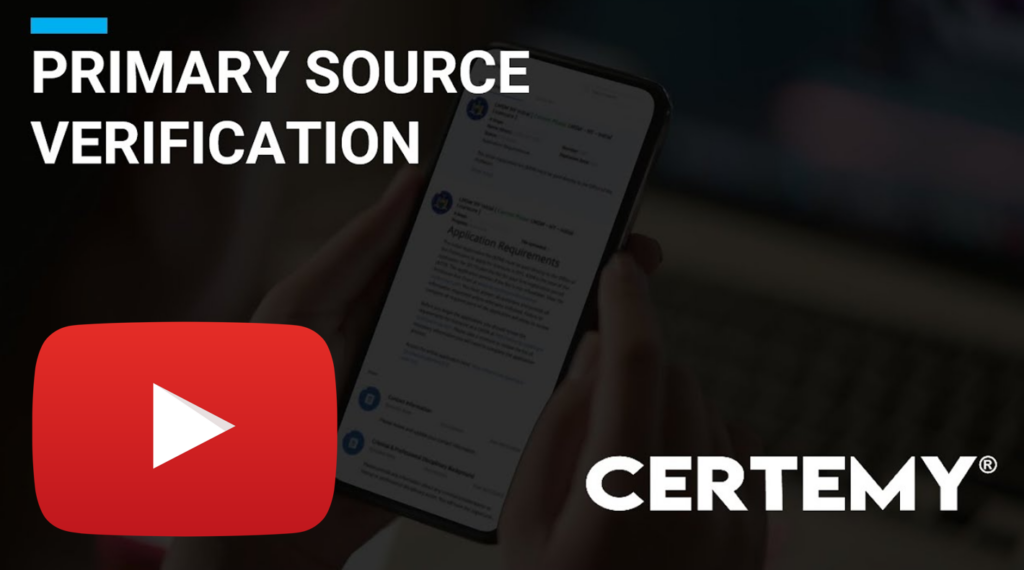
License Verification Tool | DCNS – Diabetic Clinical Nurse Specialist
Ensuring the qualifications and privileges of healthcare workers remains a major challenge for facilities handling delicate and dangerous conditions. The need for valid, up-to-date licenses and certifications for healthcare workers, such as Diabetic Clinical Nurse Specialists (DCNS), is essential to protect patients and the organization from legal and financial liabilities.
Due to the complex nature of verifying credentials, a manual approach is time-consuming and nearly impossible to manage. For organizations to remain compliant and keep up with the changing landscape of healthcare regulations and certifications, they must now turn to automated primary source verification technology for tracking their staff’s licenses and certifications.What is Automated Primary Source Verification?Automated primary source verification, or APSV, is the use of digital technology to scan government databases and provide automated real-time confirmation of healthcare and medical practitioner certifications and licenses. It automates the process of manual verification and is available for healthcare workers of all areas, including dietitians, pharmacists, physician assistants, nurses, and DCNS. APSV not only verifies the validity of credentials, but it also keeps track of any changes or updates in the sources. This automated technology is a great advantage in a heavily regulated field like healthcare, allowing companies and organizations to save time and reduce compliance liabilities. How APSV Helps DCNSOrganizations can use APSV to monitor and manage licenses and certifications across their employees. This helps to ensure that their DCNS are properly updated, renewed, and are free of sanctions or other disciplinary actions. Organizations need to certify that their employees are qualified to practice. Using APSV eliminates the burden of researching individual employees’ licensure, helping organizations to confirm that their DCNSs have the necessary qualifications to continue providing the active and in-service care they need to give their patients. APSV helps organizations to reduce their administrative workload and improve their utilization of healthcare workers. A single system of record is tracked in real-time, thereby providing improved staff productivity and visibility across the organization. Automated workflows streamline the application processes, helping organizations keep track of all necessary documents. Organizations can also avoid potential regulatory non-compliance penalties and paperwork delays when they use APSV. The technology will also let employers know of any disciplinary actions taken against their DCNS, which is an invaluable way to mitigate risk and potential liabilities. Final ThoughtsRelying on manual verification for healthcare certifications and licenses can be cumbersome and time-consuming. Organizations can now turn to APSV technology to save time and reduce compliance liabilities. Companies and healthcare organizations can verify their employees’ credentials in real-time while keeping track of any changes in the sources, thereby providing total visibility and control of their workforce compliance program.Topics:

